FF&E shipping trends that cut costs
December 8 2014
If time can be allotted in the schedule on the front end, there can be significant savings on the budget and better execution during delivery of FF&E.
|
By Darlene Henke
HNN columnist Movement and delivery of furniture, fixtures and equipment during the renovation or opening of a hotel plays a critical role in the project’s success. In today’s environment, FF&E is sourced from all regions of the world, and the supply chain that brings the furniture to the room can vary. In a perfect world the project team would have unlimited time to deliver and all goods would be produced within only a few hundred miles of the site. Because that is never the case, new trends in shipping have emerged and include not only cost savings, but also more sustainable options for the project team.
Projects east of the Mississippi should consider an additional two weeks in lead time for casegoods so items can ship via the Panama Canal. Most casegoods come from Asia and land in Long Beach, California. If you are able to allow about two additional weeks, goods can arrive into Miami; Norfolk, Virginia; Savannah, Georgia; Baltimore; or other East Coast ports to save the cost of trucking across the country. For a 500-room hotel, the savings on a casegoods purchase order alone can be in the six-digit range. Not only is there a cost savings, but it is also a more sustainable option, reducing fuel consumption and carbon dioxide emissions.
FF&E produced in North America, such as guestroom carpet or upholstery, where the manufacturer is more than 300 miles from the hotel has the ability to ship via rail if the schedule permits. Shipping via rail does not have the risk of damage that existed a decade ago, primarily due to changes in the rail infrastructure. This method can take a few more days, but on average can save about 20% to 30% of the cost of freight versus transporting via truck. The main reason for this savings is no fuel surcharge is incurred when the goods are shipped via rail. This option, like the use of the Panama Canal, can also reduce fuel consumption and emissions for a sustainable solution that also costs less.
Traditionally, when shipping FF&E, the manufacturer is required to carton goods so they can be transported, possibly staged in a local warehouse, and ultimately delivered to the hotel without damage to product. In some instances, the project site might allow for just-in-time deliveries to the hotel. When this is the case, items such as upholstery can be blanket-wrapped instead of cartoned. This can allow savings not only by not having FF&E go through a warehouse, but normally more goods can be transported inside the truck and loaded by floor at the manufacturer’s facility. In addition, cardboard does not have to be utilized, and some manufacturers can offer a cost savings in packaging, but it also saves cardboard and is better overall for the environment.
There are many other factors to consider, but these examples, when executed properly, can save money and be more sustainable at the same time. A key thing to remember is, if time can be allotted in the schedule on the front end, there can be significant savings on the budget and better execution during delivery.
Darlene Henke, President and CEO, co-founded Audit Logistics in 2002. Ms. Henke is recognized as the leading expert in hospitality logistics with over $850,000,000 of FF&E shipped and over 1,200 hotel projects completed since the company’s inception. Throughout her career, Ms. Henke has established a reputation based on integrity, hard work, and dedication to the hospitality industry. Audit Logistics provides third party transportation, warehousing, and installation services to the global hospitality industry, and has a unique, agent only, disclosed fee business model, pioneered by Ms. Henke. Today, the firm provides the only fully auditable and 100% transparent logistics services available to the hospitality industry, and its client focused business model has not been duplicated by any other logistics firm. Corporately based near Boulder, Colorado, the firm also has offices in London and Hong Kong and is serving clients in over twenty countries.
|
– See more at: http://hotelnewsnow.com/Article/14899/FFE-shipping-trends-that-cut-costs#sthash.sYJ0cE1M.dpuf

